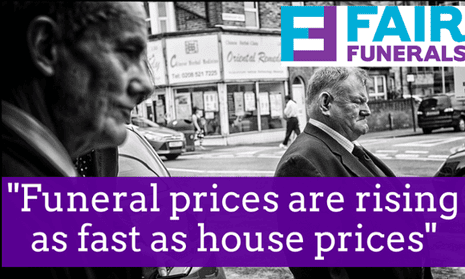What’s it all about?
The cost of dying is rising seven times faster than the cost of living, according to Quaker Social Action (QSA), a charity which aims to deliver practical solutions to problems faced by people living in poverty. After working with bereaved people on low incomes and finding that they were increasingly struggling to pay for funeral costs, the charity decided it was time to try and address the problem of funeral poverty.
How did it all start?
In January 2014 QSA set up the Fair Funerals campaign and, after realising one charity’s voice would not gain the necessary attention, formed the Funeral Poverty Alliance. Now some 40 members strong, the alliance includes a range of not-for-profit organisations including, Macmillan, Marie Curie, Hospice UK and the Church of Scotland.
Why is it such a big problem?
Funeral costs have risen so fast and the government’s answer, the funeral payment, only offers funds equivalent to around a third of the total cost of a funeral. According to a report by mutual pensions company Royal London (pdf), more than 20% of those surveyed had taken on debt to pay for a loved one’s funeral. QSA argues these factors make funeral poverty inevitable for the poorest in society.
Why is it catching on?
It’s down to earth. No really, Down to Earth, is the name of QSA’s project that helps those in need manage funeral costs. The QSA has carefully shaped it’s message to tap into the universal nature of death and grief and it has made sure that the campaign appeals to all political parties.
Heather Kennedy, funeral poverty officer, said: “We’ve learned the value of looking beyond these obvious allegiances and building relationships across traditional political divides. The campaign has succeeded when we’ve been able to communicate funeral poverty in a way that chimes with the core of people’s humanity rather than invoking contested political concepts.”
What’s different about this one?
So far, the Fair Funerals campaign has secured support from 10% of the funeral industry to their pledge, which asks funeral directors to make their prices clear and visible. QSA has used the #FairFunerals hashtag and local events to encourage the public to hold their local funeral directors to account and ask them to sign the pledge.
Now in Westminster hall debate on funeral poverty - lots of work by Quaker social action to raise these issues and @EmmaLewellBuck too!
— stellacreasy (@stellacreasy) October 13, 2015
The coalition of charities has made significant in-roads politically, securing a debate in parliament and support from MPs including Stella Creasy and Patricia Gibson, who said the issue “inspired uncharacteristic consensus” at Westminster.
What do we like about it?
There aren’t many campaigns underway that have achieved both significant cross-party support and, in just over a year, made lasting changes to an industry.
Charities could learn a great deal from the apolitical moves made by QSA. Above all, it shows the impact that can be achieved by charities coming together on an issue – hospices, churches, large health charities – their combined voices have much greater weight.
What’s next?
There’s much more to come. Over the next six months the campaign will be developing a film and some digital interactives that will enable the public to easily lobby their political representatives and join the campaign.
For more news, opinions and ideas about the voluntary sector, join our community – it’s free!

Comments (…)
Sign in or create your Guardian account to join the discussion